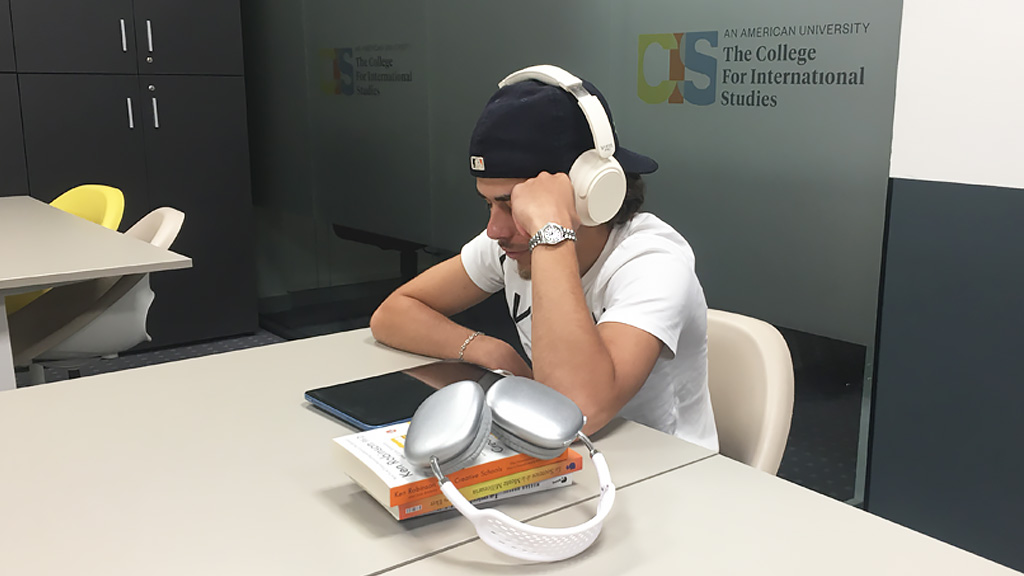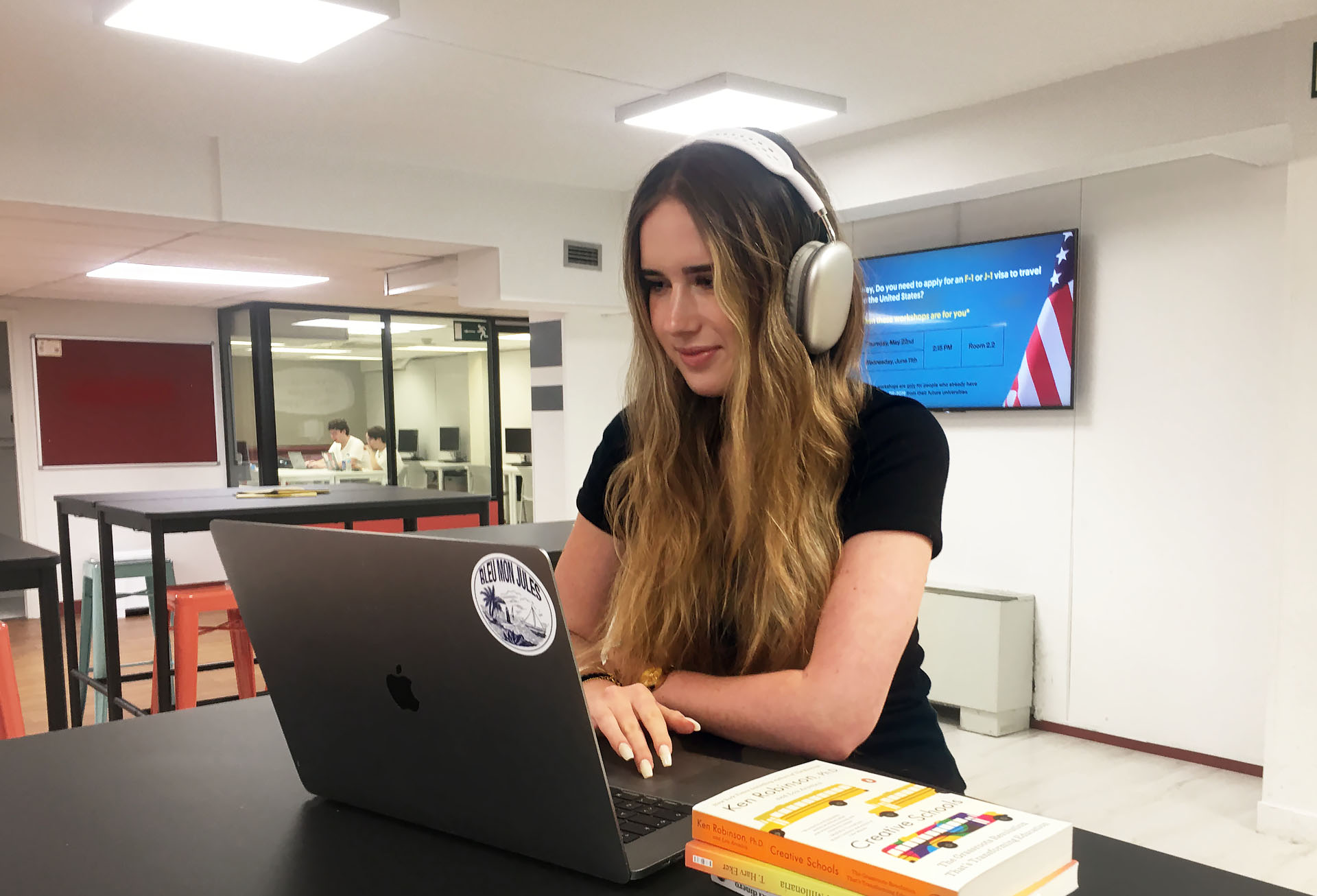Staying focused while studying is one of the biggest challenges for university students. Long reading sessions, exam preparation, or assignment deadlines all require mental stamina, and often, complete silence just doesn’t help.
That’s where music for studying comes in.
At CIS University, where flexibility and personal study methods are part of the learning process, we know that the right atmosphere can change how you experience your study time. And yes, the right studying music can be one of your most powerful tools.
But not just any playlist will do.
Let’s explore how music can support your academic performance, and which relaxing music to study with is worth adding to your daily routine.
Why Music for Studying Can Help You Perform Better?
We all have moments where our concentration drops. Whether it’s background noise, mental fatigue, or simply a lack of motivation, staying focused for long periods can be hard.
That’s why many students turn to concentration music, not to entertain, but to set the right mental environment for learning.
So, how exactly does it help?
- Reduces stress and anxiety
Calm, steady music lowers your heart rate and helps your mind stay in a more relaxed, focused state. - Blocks external distractions
If you’re studying at home, in a café, or in a noisy residence, music creates a buffer that allows you to focus inward. - Stimulates brain activity
Certain types of music activate the brain areas related to memory, logic, and emotional regulation, key for effective studying. - Increases stamina during long sessions
With the right rhythm, music can keep you mentally engaged without burning out.
Of course, not every genre is suitable. In fact, some kinds of music, like anything with loud vocals or high-energy beats, can have the opposite effect.
That’s why choosing the right playlists is crucial. And if you’re looking for a structured way to organize your study time, the Pomodoro study technique can work perfectly with these musical tools.
How to Choose the Right Music to Stay Focused While Studying
Selecting the right music for studying is not just about hitting “play” on a random lo-fi playlist.
It’s about understanding how music interacts with your brain, your environment, and the type of task you’re working on.
Here are some practical tips to guide your choices:
1. Avoid lyrics (especially in your native language)
Lyrics compete with your inner voice, especially when reading or writing. Even if you’re not actively listening to the words, your brain is processing them, and that divides your attention.
Choose instrumental tracks, ambient sounds, or music in a language you don’t understand to minimize interference.
2. Stick to a consistent tempo
Sudden tempo changes or volume shifts break concentration. Go for playlists that maintain a steady rhythm—ideally between 60 and 80 beats per minute, which mirrors a resting heart rate.
This rhythm helps your brain stay alert but relaxed, promoting extended focus.
3. Pick longer playlists without interruptions
You shouldn’t have to stop every 15 minutes to skip a song. Choose playlists that last at least one hour, ideally without ads or notifications.
Many study apps now offer music integration with uninterrupted playback to support long sessions.
4. Match the music to the task
Not all studying is the same. Here’s what works best depending on your activity:
- Reading or taking notes: piano, classical guitar, ambient electronic
- Reviewing or memorizing: lo-fi beats, alpha wave frequencies
- Writing essays or projects: cinematic soundtracks, deep focus playlists
And remember: if you already have a study routine in place, adding relaxing music for studying should fit naturally into your habits, not distract you from them.
Top Relaxing Music Playlists to Study Without Distractions

Now that you know what to look for, let’s get to the point: which playlists actually work?
Here’s a curated selection of the best relaxing music to study with. They’re available on platforms like Spotify, Apple Music, and YouTube, and have been tried and tested by students who need focus without stress.
1. Deep Focus – Spotify
This playlist features ambient electronic music with minimal variation in tempo or volume. Designed for deep concentration, it’s especially helpful when you need to focus on problem-solving or writing.
Best for: assignments, essays, coding sessions
2. Peaceful Piano – Spotify
If you’re looking for a more classical approach, this playlist offers soft, calming piano melodies that are easy on the ear and great for extended reading sessions.
Best for: exam prep, textbook reading, silent study hours
3. Lo-Fi Beats – Spotify / YouTube
Lo-fi is a favorite among students for a reason: it blends soft rhythms with gentle background sounds. No vocals, no drama—just a smooth mental flow.
Best for: group work, revising notes, brainstorming sessions
4. Focus Flow – Apple Music
This curated playlist gradually adapts energy levels, maintaining a state of sustained focus without fatigue. With a mix of chillstep and downtempo genres, it’s both engaging and discreet.
Best for: long study blocks or the Pomodoro method
5. Rain Sounds for Studying – YouTube
Technically not music, but incredibly effective. Rain sounds mask external noise and help build a sense of acoustic isolation. Combine this with any visual task and your mind will thank you.
Best for: reading, meditating between sessions, relaxing before tests
6. Binaural Beats – YouTube / Study Apps
These tracks use frequency layering to stimulate certain brain waves. While not universally effective, some students find them ideal for increasing alertness and sustaining mental performance.
Best for: early morning study, midterm cram sessions
Whether you’re prepping for finals or reviewing class notes, choosing the right relaxing music for studying can be a simple, consistent way to keep your mind in the right state.
And remember, music isn’t just a background tool—it can be part of a whole strategy.
If you’re still building your academic habits, CIS University helps students create their own rhythm with study plans that adapt to real life.
At CIS University, we’re not just focused on theory—we focus on how you actually learn.
That’s why we integrate technology, flexible learning strategies, and international perspectives into everything we do. You’ll find support for your personal study habits, tools to improve your focus, and a clear connection between your degree and your career.
If you’re exploring academic programs that work with you, not against you, check out our university degree programs.
Because in the end, the goal isn’t just to study harder—it’s to study smarter.
